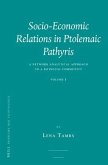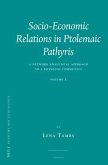In the early 1880s a disastrous plant disease diminished the yields of the hitherto flourishing coffee plantation of Ceylon. Coincidentally, world market conditions for coffee were becoming increasingly unfavourable. The combination of these factors brought a swift end to coffee cultivation in the British crown colony and pushed the island into a severe economic crisis. When Ceylon re-emerged from this crisis only a decade later, its economy had been thoroughly transformed and now rested on the large-scale cultivation of tea. This book uses the unprecedented intensity and swiftness of this process to highlight the socioeconomic interconnections and dependencies in tropical export economies in the late nineteenth century and it shows how dramatically Ceylonese society was affected by the economic transformation.








